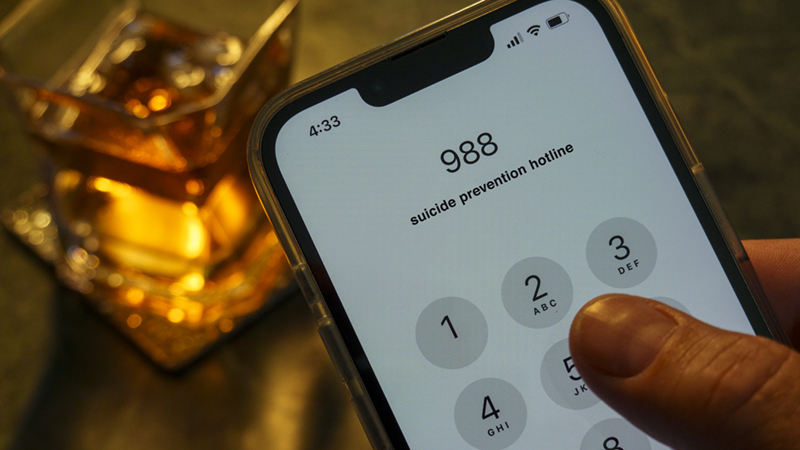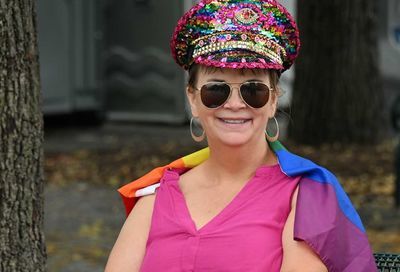Two Virginia Senate subcommittees pass pro-LGBTQ measures
Bills to ban conversion therapy, eliminate surgical requirement for changing gender marker on birth certificate approved

On Tuesday, two Virginia Senate subcommittees passed a bill to ban conversion therapy and another allowing transgender people to obtain a new birth certificate reflecting their true gender identity.
Earlier in the day the Health Professions Subcommittee of the Education and Health Committee voted along party lines, 4-3, to move along a bill that would prohibit the practice conversion therapy on minors in the commonwealth.
The bill, introduced by Sen. Scott Surovell (D-Mount Vernon), would enshrine in Virginia’s laws protections for youth that are nearly identical to regulations approved by the Virginia Board of Psychology and the Board of Counseling last year.
Guidance from both boards classifies the act of subjecting patients to conversion therapy a form of “misconduct” — which could carry penalties or other ramifications for those who engage in it.
All four Democrats on the subcommittee approved moving the bill to the full Education and Health Committee for consideration. Sen. Siobhan Dunnavant (R-Henrico), who voted against the bill, has previously expressed her opposition to conversion therapy, but believes that regulations governing medical professionals are both sufficient and the appropriate vehicle to protect children.
She sees a statute explicitly banning conversion therapy as unnecessary, as decisions are better left in the hands of therapists than elected officials who may lack medical training.
The bill has been scheduled to be voted on by the full committee on Thursday.
Meanwhile, the Health Subcommittee of the Education and Health Committee met to debate a bill that would allow transgender Virginians to obtain a new, accurate birth certificate reflecting their gender identity.
The bill, introduced by Sen. Jennifer Boysko (D-Herndon), would eliminate the requirement that transgender individuals provide proof of having undergone gender confirmation surgery before they can change the gender marker on their birth certificate.
Instead, a person could obtain a form provided by the State Registrar and have their medical provider attest to the fact that they have undergone appropriate medical care for gender dysphoria.
“We already have a procedure in place for transgender individuals to go through to change the sex on their birth certificate,” Boysko told the subcommittee, noting that proof of surgery is not required for transgender Virginians to change any other vital documents, such as passports, state IDs, driver’s licenses, or Social Security cards.
“This would eliminate the existing requirement that they must present court-ordered proof of a medical procedure,” said Boysko. “It is inconsistent with medical understanding of gender identity, and advocates believe its an invasion of privacy.
“The burdensome requirement of providing a medical procedure not only violates an individual’s privacy and autonomy but also has disproportionate socioeconomic repercussions. Surgery is expensive, it’s not always covered by insurance, it’s not widely available and it has a long and painful recovery period,” she said. “This would allow [transgender people] to have consistent IDs, so they can open their bank accounts, start a new job, enroll in school, travel, or other routine processes.”

The bill was opposed by the Virginia Catholic Conference and the Virginia Family Foundation, which have opposed LGBTQ rights bills in past legislative sessions.
Spokesmen for both organizations objected to any recognition of gender as anything but immutable and based on one’s assigned sex at birth, in keeping with their conservative religious beliefs.
Dr. Todd Gathje, the director of government relations for the Virginia Family Foundation, argued that allowing people to change their gender marker, and particularly if they have not undergone genital surgery, would pose a security risk and “add to societal chaos” as well as create confusion for the commonwealth’s Department of Vital Statistics when people attempt to change their gender marker on IDs.
He also suggested that it would allow anyone to change their gender any number of times, such as criminals who would use it to access all-female spaces, or teenagers who would classify as female in order to win sports competitions — two oft-repeated tropes employed by opponents of transgender rights.
But Dr. Sarah Fox, a transgender neurobiologist, stood up before the committee to dispel some of the myths propagated by Gathje and other opponents, saying it was nonsensical to suggest that transgender people change their gender identity at a whim or for nefarious purposes.
After questioning Boysko about her bill, Dunnavant sought to clarify that the bill would simply remove the requirement demanding a court order or proof of gender confirmation surgery before a new copy of the amended birth certificate.
She noted that there is a “rigorous clinical threshold” that must be met when a person wishes to transition, and rejected the ideas espouse by Ramon. She then offered several friendly amendments intended to tighten up and remove any superfluous language.
The committee adopted the suggestions, and voted, 4-1, to send the bill before the full Education and Health Committee on Thursday.
Read more:
Tennessee Republicans pass bill allowing adoption agencies to turn away gay couples
Presidential candidates make closing arguments in last debate before Iowa caucuses
Elizabeth Warren again highlights anti-trans violence at Democratic Debate
Support Metro Weekly’s Journalism
These are challenging times for news organizations. And yet it’s crucial we stay active and provide vital resources and information to both our local readers and the world. So won’t you please take a moment and consider supporting Metro Weekly with a membership? For as little as $5 a month, you can help ensure Metro Weekly magazine and MetroWeekly.com remain free, viable resources as we provide the best, most diverse, culturally-resonant LGBTQ coverage in both the D.C. region and around the world. Memberships come with exclusive perks and discounts, your own personal digital delivery of each week’s magazine (and an archive), access to our Member's Lounge when it launches this fall, and exclusive members-only items like Metro Weekly Membership Mugs and Tote Bags! Check out all our membership levels here and please join us today!






























You must be logged in to post a comment.